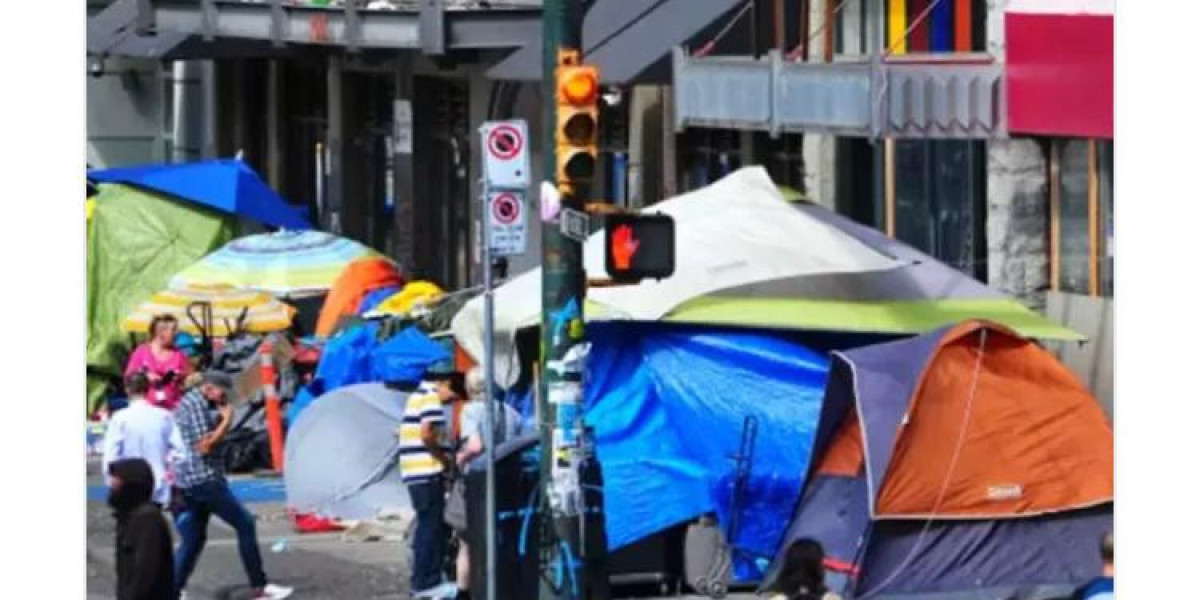Canada is facing a growing homelessness crisis as housing prices and rents continue to rise in the country's real estate markets. Reports indicate that tens of thousands of people have been forced to live on the streets, despite Canada being a top destination for immigrants and refugees.
A recent study conducted in September revealed that one in two homeless individuals in Quebec can be found in rural areas of the eastern province, rather than primarily in Montreal as was previously the case. The study also highlighted that nearly one in every four homeless people in Quebec ended up on the streets after being evicted from their housing.
Between 2018 and 2022, the number of homeless people in Quebec increased by 44 percent, reaching 10,000 individuals last year. Indigenous people, particularly Inuit, are overrepresented among the homeless population, according to Karine Lussier, a director of a local anti-poverty organization. Lussier emphasized the urgent need for affordable housing, stating that in Granby alone, at least 1,000 affordable housing units are required.
The report also shed light on the existence of temporary camps, such as one located in a cemetery in Granby, where some individuals have been living for months after being evicted from their homes. Danny Brodeur-Cote, one of the affected individuals, expressed the challenges of finding affordable housing, stating that the limited available options are too expensive.
The issue of rising housing costs and homelessness is not limited to Granby. Mayor Julie Bourdon noted that visible homelessness did not exist in Granby three years ago, but rents have significantly increased since then. Rather than dismantling the camps and relocating the residents, the city has chosen to maintain them as "places of tolerance."
The situation in Granby may only be the tip of the iceberg, according to Mayor France Belisle of Gatineau, a city across the river from Ottawa. Belisle believes that the figures compiled a year ago may not fully capture the extent of the homelessness crisis.
Official government data suggests that there are approximately 235,000 homeless people in Canada, but this only includes individuals who use shelters. However, experts like Cheryl Forchuk, a professor at the University of Western Ontario, argue that the true number of homeless individuals is significantly higher and that the current estimates underestimate the problem.
Prime Minister Justin Trudeau acknowledged the housing challenges faced by Canadians, stating that even well-off individuals are struggling to find suitable housing. Despite these challenges, Canada continues to welcome immigrants from around the world, including Nigerians. The Canadian federal government recently announced plans to admit 500,000 immigrants per year by 2025, with nearly 1.5 million new immigrants expected to arrive in the country over the next three years.
In 2022, Canada welcomed 437,120 permanent residents, representing an almost eight percent increase from the previous year. Sean Fraser, Canada's immigration minister, stated that the immigration levels plan aims to address labor market needs and help businesses find the workers they require.
Naijamatta is a social networking site,
download Naijamatta from Google play store or visit www.naijamatta.com to register. You can post, comment, do voice and video call, join and open group, go live etc. Join Naijamatta family, the Green app.
Click To Download


